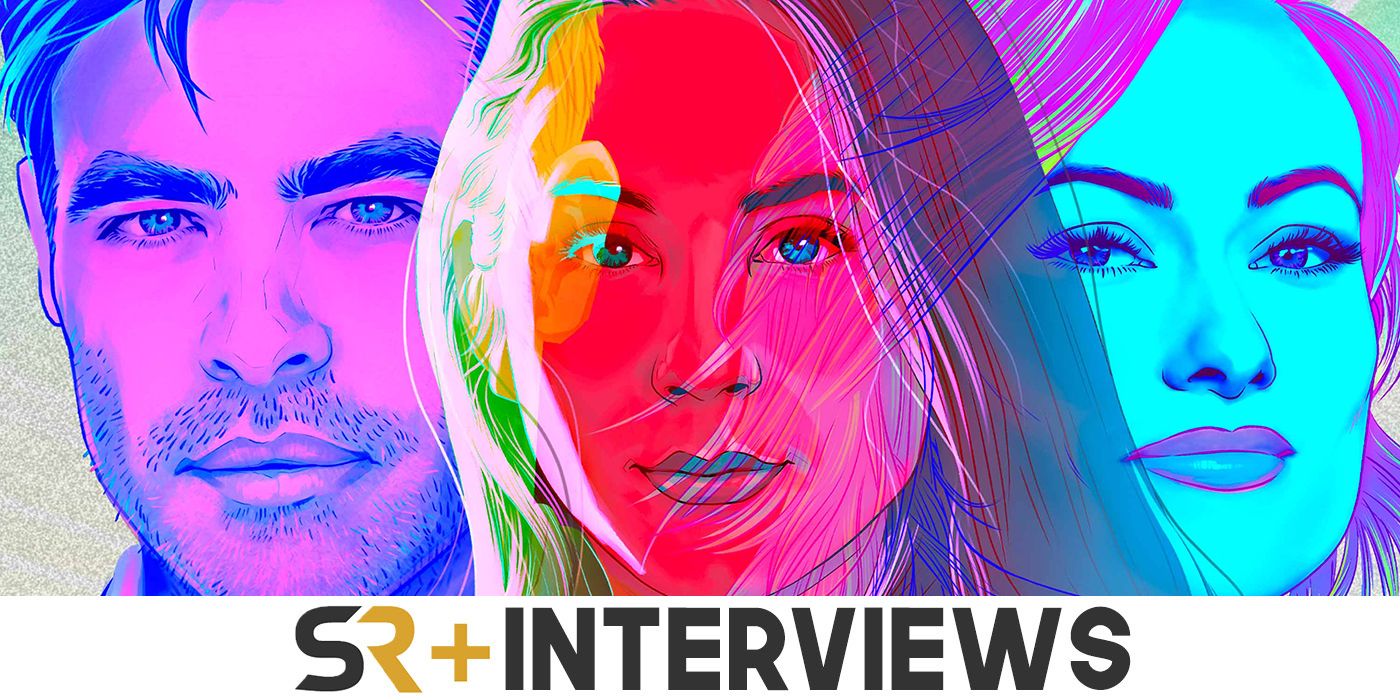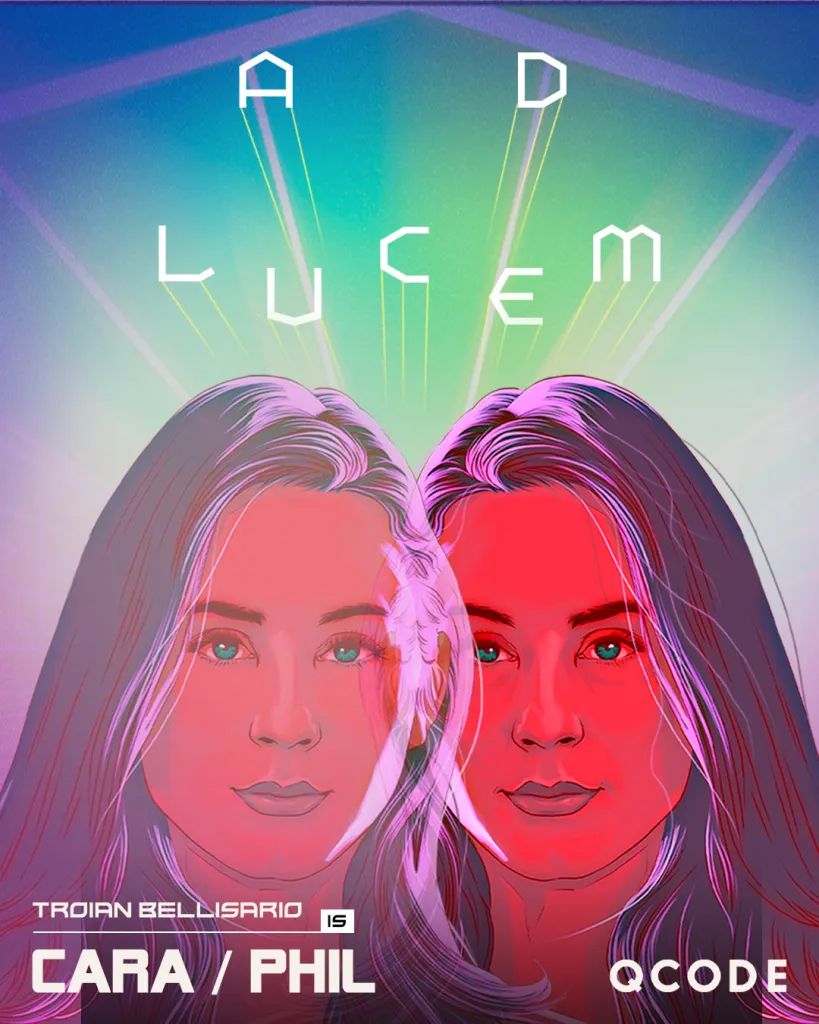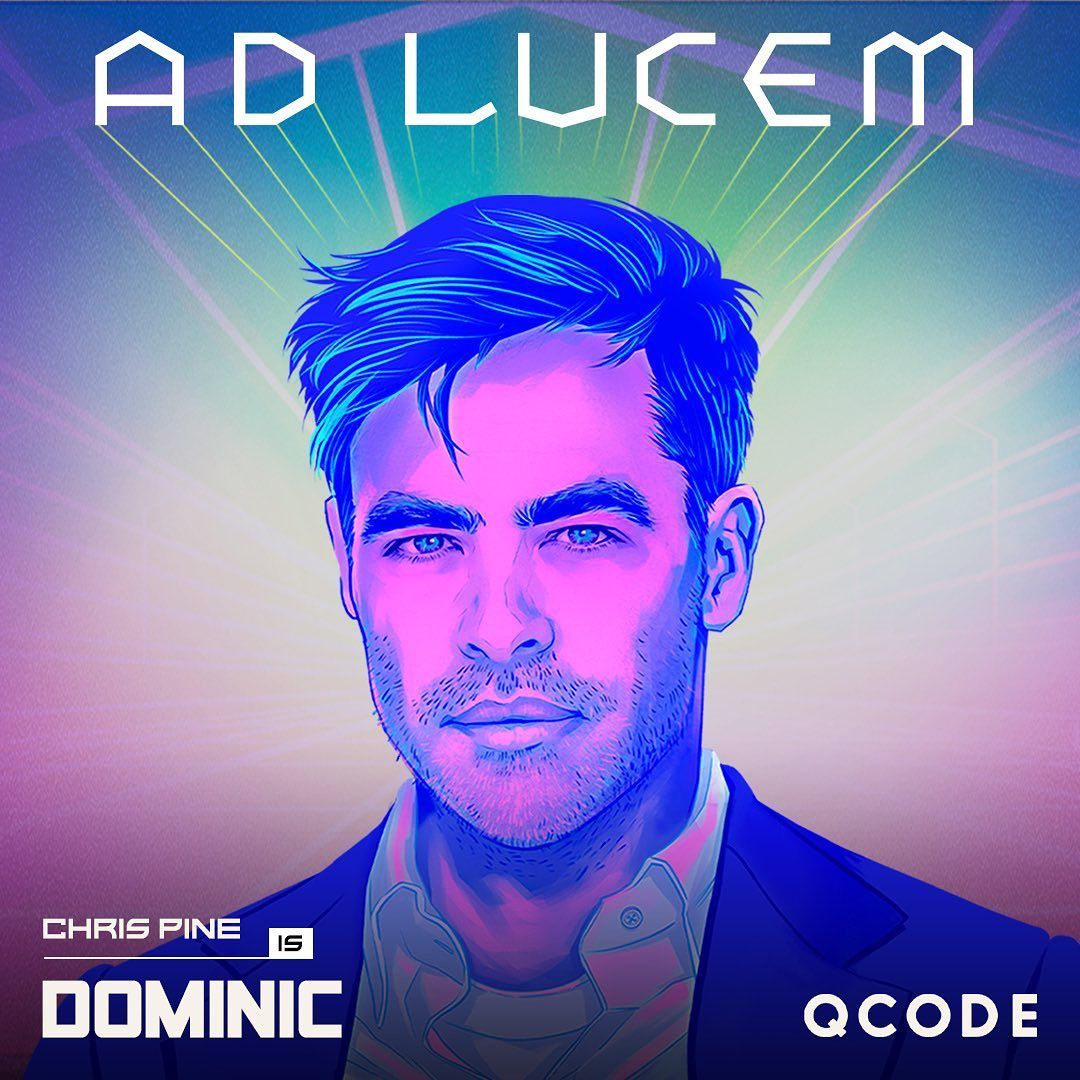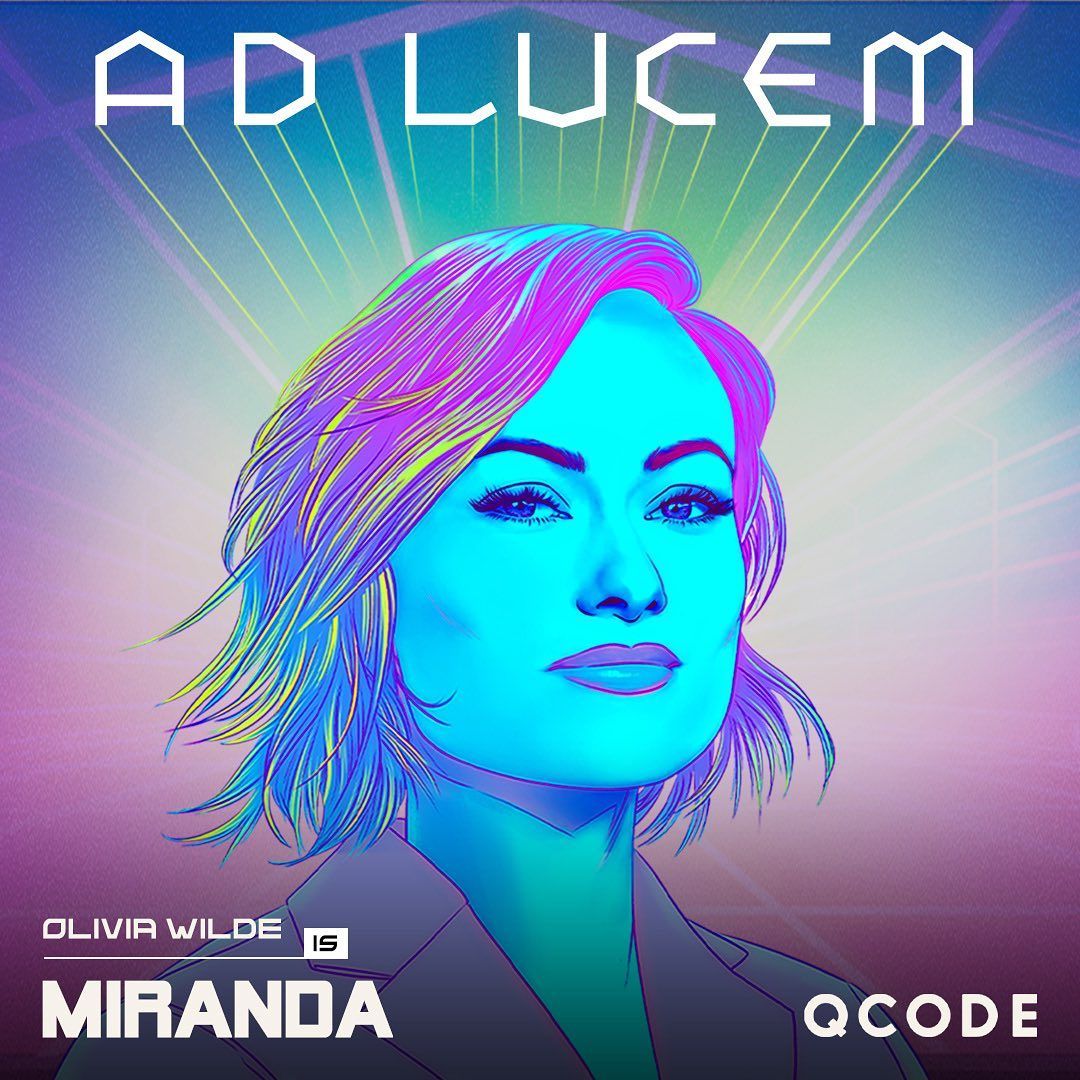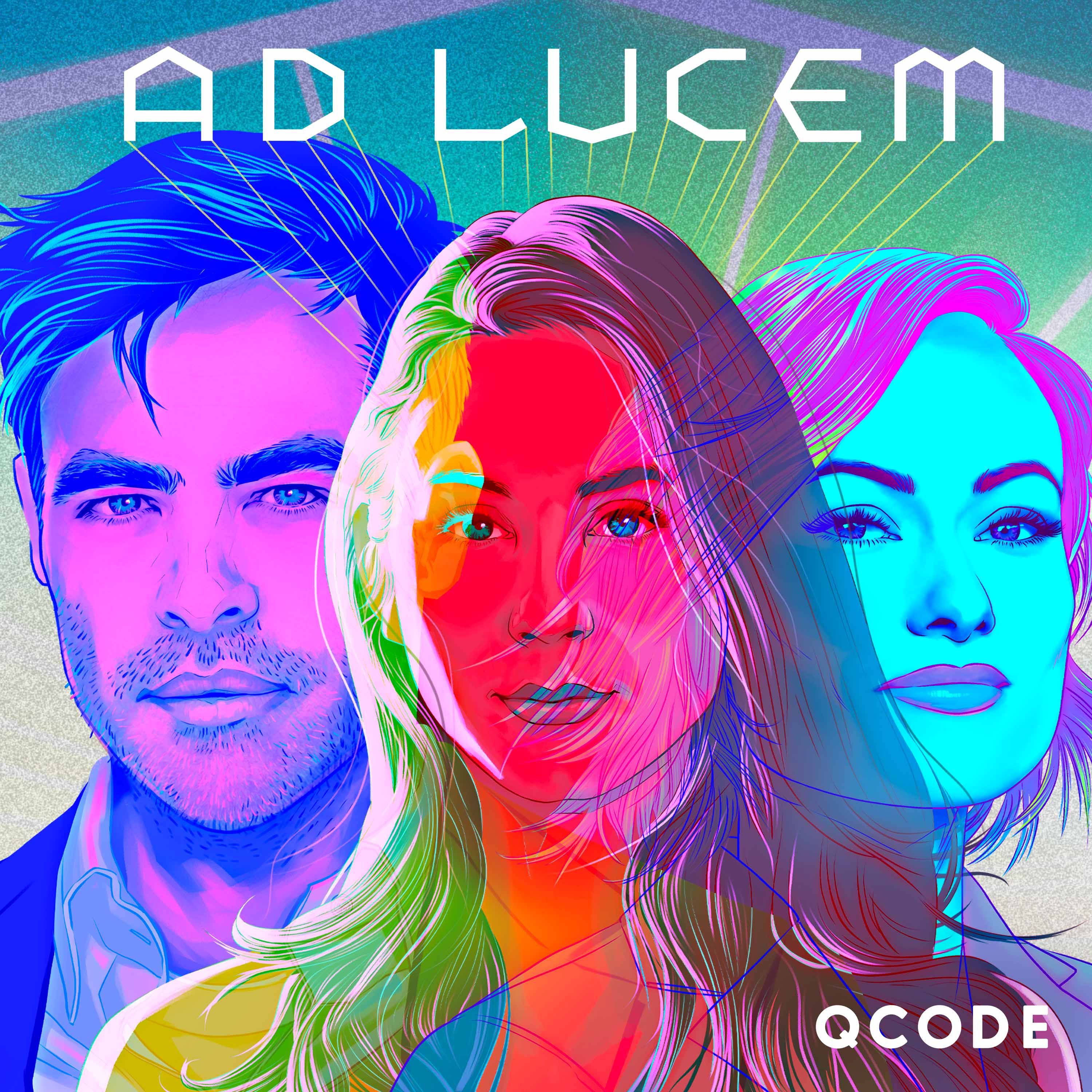Summary
- Troian Bellisario recently finished the first season of her podcast, Ad Lucem, which she not only starred in but also co-created and directed.
- Ad Lucem is a sociopolitical audio drama about a tech company run by a mysterious woman named Miranda, whose vision of Organic Intelligence (OI) aims to connect people but has faced corruption and abuse.
- Bellisario was involved in the production process and worked closely with QCODE and SALT to create an immersive audio experience that engages the listener's imagination.
Troian Bellisario has recently accomplished an impressive feat, finishing up the first season of her first-ever podcast, Ad Lucem. The actress not only lent her vocal talents to the audio drama, but also directed the project, which she created alongside Josh Close. Produced by QCODE, Chris Pine's Barry Linen Motion Pictures, and SALT, the scripted podcast is a tech-centered sociopolitical story that hits close to home in more ways than one.
Ad Lucem follows Phil (played by Bellisario herself), an employee who works at a tech company run by the mysterious and efficient Miranda (Olivia Wilde). Miranda's vision of OI — meaning Organic Intelligence, as opposed to artificial — is meant to connect people more than ever, but abuses inside and outside the system have caused her previously successful experiment to lose its purpose. Phil and her coworker-turned-fling Dominic (played by Pine) slowly begin to find themselves in a web of deceit and corruption, much of which is being perpetrated by Miranda's own business partner Vincent (Clancy Brown).
Screen Rant spoke to Bellisario about working with QCODE to create Ad Lucem's immersive audio experience, handling the trauma both Phil and Miranda face with care, and why Fiona Shaw's Francis was such an important yet surprising piece of the puzzle. Note: While this interview was conducted during the 2023 WGA and SAG-AFTRA strikes, the podcast covered here is protected under the current SAG-AFTRA Podcast Agreement.
Troian Bellisario Talks Ad Lucem
Screen Rant: I’m so interested in the concept of OI, or “organic intelligence.” Miranda's goal is to maintain human connection, and yet the methods are so perverse. Where did this idea come from, and how did you and Josh Close get started on it?
Troian Bellisario: Great question. It came from ... I originally had an idea for a film that was mostly following Phil's character. And the thing that I was the most interested in is in ... I was kind of thinking how in a few years we will be able to be whoever we want. We already are on the internet, but I felt like with deep fakes and new AR-generated visuals, we'll be able to present to anyone any relationship we want to have with them. And it might become less attractive to us to have to meet a person randomly out in the world when we could just say, "I want a best friend from this time to this time. I want a physical trainer from this time to this time. I want this person." And I brought that sort of concept to my friend Josh.
I was talking to him about it. And originally the concept was sort of about Phil and Francis and the backstory that comes out over the course of the first season. And Josh, my friend, was just sort of spitballing with me on the floor, and he was kind of like, "Well, what's that tech company? Where does she work?" And I was like, "Oh yeah, that is really interesting. What kind of technology would be able to support that and how could it work? And also who came up with this idea? Who runs it?"
At that time, we were obsessively following Elizabeth Holmes and the whole Theranos thing. So, we were kind of like, "What if instead of some sort of Elon Musk, Mark Zuckerberg, male wunderkind, it was a woman who was at the front of this technology? And what does that mean about the way a woman approaches technology, especially technology about connection?" And that's really where it sort of snowballed from there.
I love that there's a warning at the start of every episode about the immersive experience because if I was driving, I'd be like, "Well, what's behind me? Oh no, it's just the sound of the podcast.”
Troian Bellisario: I know. It's really a wild different way of listening to things. Particularly for me, I listen to podcasts constantly and always have them in my ears when I'm doing laundry, I'm doing dishes, or whatever. And I'm very glad that they put in the warning because the way that it was designed was to be so all around you. Especially as it starts to get into later episodes and the more intense sounds, I was like, "I really want to make sure people are safe."
Is that something that you wanted from the start, or was that kind of pitched to you? How involved were you in the production side of this process?
Troian Bellisario: Very involved once it sort of got off the ground. When we went to pitch it originally, my producing partner Ian Gotler said, "What if this was a podcast instead of a TV show?" And I was like, "Well, it involves holograms. I don't know how that would even work." It's so visual in my mind – and it had been so visual, whether it was a movie or TV show or all of these different iterations. When he said, "Let's start to think of it as an only auditory experience," I really was afraid. I was like, "Oh, a lot is going to get lost in the translation."
But when we partnered with QCode and SALT, they were like, "Let us show you what this can be and how immersive it can be." It's totally different than just what I would call a normal podcast, because it's almost a little bit like reading a book where it engages a part of your imagination and forces you to dream up these worlds and these visuals. Even if you have Chris Pine's face or have Olivia Wilde's face or something like that, the world sort of takes on its own character in the way that when we read a novel, we're sort of involved in a way that's different than just observing a TV show or something.
It really became apparent to me when I was invited into the directing process and QCode and SALT started asking me questions that weren't just like, "This is what the sound of the door creaking is going to sound like." It was kind of like, "How far away is the door? Is the door seven feet away? Does it open quickly? Am I near the door? Is the audience closer to the door than Dominic's character?" You know what I mean? All these spatial questions opened up to me a whole new world that I hadn't imagined before.
You mentioned Francis earlier, and the twist with her was crazy. First off, I never imagined that's what it was going to be. And then when it came out, I was like, "Obviously, it has to be connected back to Shane." How did Fiona Shaw come on and what did she bring to that role? Because you're like, "She's crazy, but also I want her to be my mom as well."
Troian Bellisario: I know. Fiona Shaw has always been an icon to me, as far as actors that I just admire and feel really changed the landscape of our industry. She’s just such a classic force.
When it came time to cast Francis, we were talking with Chris [Pine], who's also a producer on this, and went through his agency. We said, "Who do we have? Who could we get this script in the hands of?" Because I feel like you don't know who's going to respond to a podcast. Somebody might be like, "A podcast. Great, I can be in my pajamas. This will be fun." And other people might be like, "A podcast. I don't get it. Why are we doing this? We really wanted to make sure that we could just deliver the scripts into somebody's hands, but it’s hard because it's not like we could just give her the first script where she has one line. We had to give her scripts way down the line.
I really wanted to access theater actors because I wanted to be able to say, "I know that you're not heavy upfront, but I'd like you to read this world. And then these are the scripts where you will really come out." As you've heard the entirety of it, the way that I imagine Francis' character is you have this podcast world that you're listening to, and then in literally episode 6, one of the characters throws a hood over your head and then kidnaps you and puts you in an entirely different podcast.
Fiona, from the jump, read it and loved it. And I knew from her whole theatrical career, I was like, "She's going to be able to give us more than we ever asked for." I really had to put away my fangirl hat when I was directing her. I was very quietly like, "God, please be cool, Bellisario." Because working with her, directing her, working with her as a writer, she had so many great ideas and thoughts about the character that melded into the world.
She was in London when we were directing her, and she did the whole first half of the day, which was kind of the easy stuff. I don't know why we left the big stuff for her. Then I had to get in the booth with her and do the major Phil-Francis things, and it was really wonderful to have the experience of the warmup of the day and getting to learn her as an actor and her getting to learn me as a writer-director. After getting to jump in and act in scenes with Fiona Shaw, I think I melted into a puddle when she signed off at the end of the day. She was like, "Bye." And I was like, "Bye!!!!"
I can only imagine. You mentioned season 1, and I know the final scene could be a conclusion, but I'm also like, "I want to see where Phil and Miranda go from here." Are there plans in place now for season 2? How ambiguous or definitive did you want that final scene to be?
Troian Bellisario: I really wanted to leave it open because I feel like so much is changing in the landscape of technology, and this obviously is speculative fiction. And I think to me, I'm very interested in the anti-tech movement of it all. I feel like a lot of the conversations that Francis and Phil have in the final episodes are Phil saying, "I understand that you have a personal stake in seeing Lucem go down, but what you're asking to change is a global movement, and it's not just going to end if CARA goes down." I feel like there is a much bigger story to be told about Francis and this movement and really Miranda and how she comes out of this. Because to me, technology's not going anywhere. I think that was Phil's argument. "Sure, you can cut off this head of the hydra, but three more are going to pop up."
And what does that mean for Miranda, who is an inventor and who didn't just invent CARA; didn't just invent this haptic suit and this technology? She's got all of these other ideas in her, and she's not going to be stopped. So, I wanted to leave it very open because I do see a future, particularly of these three women in this triangle of power trying to figure out how to navigate the world together.
I thought it was really fascinating how both Phil and Miranda are victims, or they have experienced trauma, but they are also complicit in perpetuating it at the same time. There's that question of how much guilt they feel, and what else they could even do in this situation. How did you and Olivia toe that line for your characters?
Troian Bellisario: I'd be lying if I didn't say that I had a lot of fear around it. But in my experience of people speaking about their sexual trauma, speaking about assault, there is a huge element to acknowledge, which is how much they feel responsible in the moment, and whether that is accurate or true. But there is this sort of complicity, to me, Miranda, the idea that she had, which is she went through this trauma and her way of protecting herself was by controlling her relationship to her rapist and keeping him close because that was a means that she felt she could protect other people. And the same thing with Phil.
I think that there are these experiences we have where we feel so much responsibility, especially in Phil's case, when it comes to what is her culpability in her relationship with somebody who is underage. How does she feel moving forward from that as an adult dealing with a minor? I just feel like these are really, really messy conversations. I wish the world was as clean and black and white as, "This person did this, and then we got justice, and then everybody moved on and was able to heal." I would love that. But I think that stories of trauma are so much more intricate. Even when we get justice, even when this person is finally put in jail, there's this ripple effect of pain that they've caused that is unfortunately still present.
I think Miranda holds so much of that, and Phil holds so much of that, and they can't just close the chapter in the way that I think they both wish they could.
Finally, I feel like you obviously have a knack for the audio drama. I know that you think that this particular story could go on, but do you have other stories percolating outside of Ad Lucem?
Troian Bellisario: Well, it definitely opened the idea up to me. I think before this, I was in such a mindset of TV, film, and theater being the mediums that I understand and the sandboxes I can play in. And now that this world of audio drama has opened up to me, I do think I am thinking of stories that I have been ruminating on in the past. I’m feeling like, "Why couldn't that be a podcast?" Or, "That would be an interesting world to delve into."
Right now, our whole industry is on pause, and it was really amazing to get to work on this because there were SAG agreements with independent podcast producers. I felt incredibly lucky to be able to have worked as a writer, director, and actor on this. But it takes a very long time in order to take things from the initial seed idea script to the movie or to the television show. It takes years and years and years. Whereas, one thing that was kind of amazing about working with the podcast space was it was the fastest process I've ever had. The experience of having a story idea and getting it to the realization was really incredible
I would love to continue to play in the podcast space. I do have several ideas because it feels like it's a path of least resistance right now, particularly in our industry, to telling stories.
About Ad Lucem
The year is 2032, and the revolutionary tech company AD LUCEM OI has over 10 million subscribers. Their Corporeal Augmented Reality Assistant, or CARA for short, is a massive success. CARA isn’t just another listening device. It’s a virtual assistant, helmed by a live operator, that responds to the wants and needs of its clients in real time – the way only a human can. With an update to this game-changing technology on the horizon, the company’s CEO is poised to capture the fame and fortune she’s always dreamed of. But it is quickly revealed that her determination to “maintain the thread of human connection” might have unintended consequences.
All episodes of Ad Lucem season 1 are now available to stream on any podcast platform.

